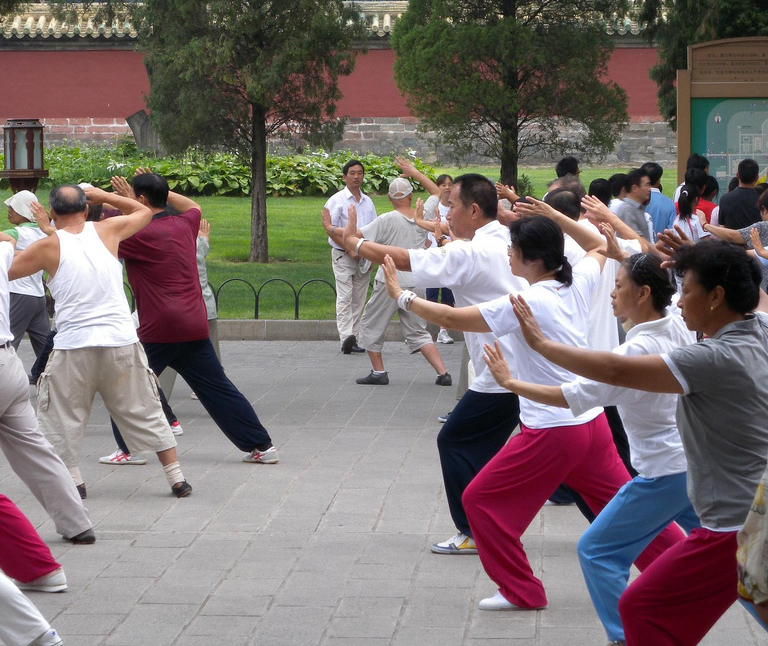Future Now
The IFTF Blog
Announcing HH2011 Research Agenda

In 2006, IFTF developed the Global Health Economy Map of the Decade to describe the innovation landscape for a wide range of products and services not traditionally associated with health or health care. In 2011, Health Horizons will update this research to create a new map of the decade forecasting the global well-being economy. This map will be a guide to extend our global reach and explore health innovations and ecosystems of well-being in Asia, Latin-America, Europe, and North America.
Today more than half of the world’s population lives in urban areas, or what IFTF calls the urban wilderness. Cities across the world—from Beijing to San Paolo to Los Angeles— are becoming hubs of experimentation and creativity, and are becoming important crossroads for innovation and risk in the global health economy.
The past, present, and future of cities cannot be understood without looking through the lens of health. The future of health and well-being cannot be understood without looking at cities. Cities represent unique ecosystems of people, networks, resources, and environments whose capacity for producing health and well-being will undergo tremendous change in the next decade.
As people move to the world’s urban centers, not only are their lifestyles being transformed by better economic conditions, but with the lure of the city can come tradeoffs to social cohesion and steep health risks.
Despite resource scarcities that pose limits on how cities can grow healthfully, improvements in the health and well-being of cities across the globe is impressive. Successful public health initiatives in immunizations, water sanitation, child and maternal health, to name just a few, have radically extended the expected lifespans for many across the world.
Yet, along with these impressive improvements in people’s lifestyle, new and persistent risks threaten people’s health and well-being. Neglected tropical diseases continue to endanger the poor. Climate change will impact health in significant ways. And while the efficiency of the manufacturing and global distribution of food and beverages have created a dynamic global marketplace of affordable food for many, it has, by design, made us all vulnerable to zoonotic outbreaks and food-borne illnesses at an extreme scale.
And let’s not forget lifestyle and behaviors. Thanks to a changing diet, a more sedentary lifestyle, extended lifespans, and an uptake in smoking, chronic illnesses such as obesity, cardiovascular disease, and cancers are on the rise throughout the world.
So where does this leave us?
Innovations and creative responses are already emerging from the top down and bottom up. Explorations of the world’s cities and their health ecosystems will reveal significant changes already underway that promise to enhance our individual and collective capacities for health and well-being.
---------------------------------
Our 2011 Deliverables:
Ten-Year Forecast Map: Global Well-Being Economy
A ten-year forecast map with artifacts from the future exploring the driving forces and innovations that will shape the global well-being economy.
Forecast Perspectives: Ecosystems of Well-Being
A series of companion reports to the map that explore our forecasts more deeply and highlight how they can be used to identify innovation opportunities across the global well-being economy.
Insight Cards: Signal of Disruptive Innovations
A strategic thinking tool designed to identify innovation opportunities for your organization. The tool will feature “signals” from cities across the world and the ecosystems of global well-being they represent.
Member Conference: Ecosystems of Global Well-Being
June 9–10, 2011, at the Cavallo Point Conference Center near the Golden Gate Bridge in Sausalito, California.
›› Annotated graphic recording of the meetings
›› Annotated PowerPoint slides and material from conference presentations.
Scenario Studio Workshops: Alternative Futures
A series of scenario sessions designed to build alternative futures of your organization in the global well-being economy.
------------------------------------
For more information on our research agenda for 2011, please download our program brochure here.
Please email Dawn Alva or call at 650-233-9585 for more information and membership in the Health Horizons Program.



